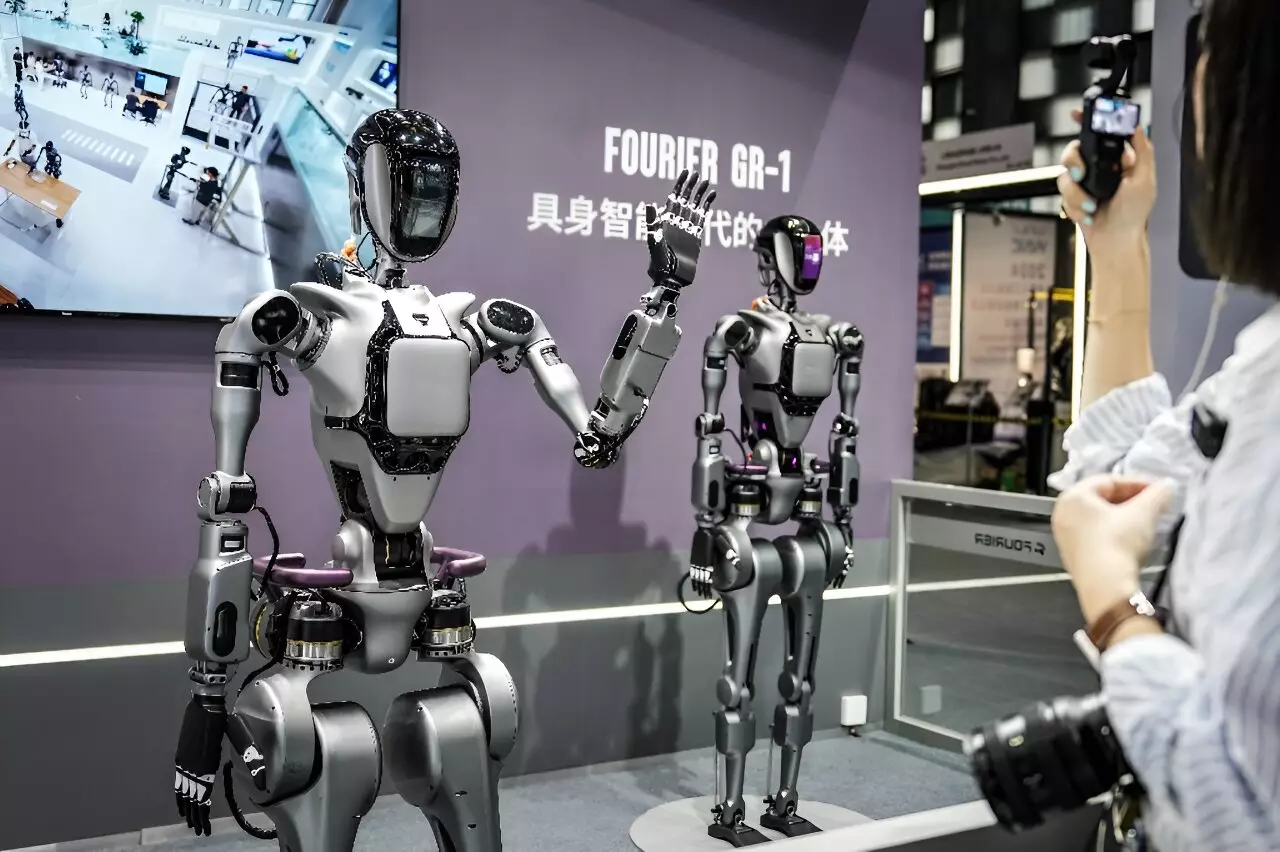China’s AI sector has displayed immense confidence at a recent major fair in Shanghai, showcasing cutting-edge products developed by a growing pool of talented young individuals. The generative AI industry in China has experienced significant growth, as evidenced by the United Nations reporting that China has been the leading filer of patents for AI software in recent years. Exhibitors at the World AI Conference in Shanghai took the opportunity to display a wide range of generative AI products, including realistic “watercolors” and sci-fi illustrations created by software. Additionally, a group of humanoid robots developed by numerous Chinese organizations entertained visitors by performing coordinated movements. Despite concerns about Western restrictions, Ethan Duan, an employee of a startup incubator, remains optimistic about China’s tech talent pool and its potential to thrive in the face of challenges.
In recent years, China has significantly expanded its domestic AI talent pool to meet the demands of its rapidly growing industry. Data from a global AI tracker by MacroPolo, the think tank of the Chicago-based Paulson Institute, indicates that China now hosts nearly half (47 percent) of the world’s top AI researchers, up from 29 percent in 2019. This growth in talent is crucial for driving innovation and advancement in the field of AI within China and on a global scale.
Despite the positive outlook within China’s AI sector, there are increasing concerns about Western restrictions and measures aimed at limiting China’s technological advancements. OpenAI, a US company known for ChatGPT, has accused China of leveraging its language models for influencing social media sentiment. As a result, OpenAI will stop providing its app programming services to Chinese developers. The US government has also taken steps to restrict the export of certain American chips used by Chinese tech giant Huawei. Critics of China’s AI industry argue that these technologies could be exploited for espionage purposes. However, Chinese companies remain resilient in the face of these challenges, with many, such as software company OpenCSG, expanding their operations abroad.
Despite the geopolitical tensions, interest in AI products continues to rise, as evidenced by the crowds of eager visitors at the Shanghai fair. Visitors lined up to explore the latest games and interactive exhibits, showing a strong appetite for AI innovation. Shi Yunlei, the founder and CEO of an AI-equipped health equipment company, noted that interest in his products was already high, even before mass production had begun. Similarly, Lyu Meixiu of OpenCSG expressed confidence in China’s technological capabilities, predicting that the country would continue to narrow the gap with the United States and potentially surpass it in the future.
A speech by Li Qiang, China’s second-ranking official after President Xi Jinping, at the World AI Conference emphasized the country’s dedication to advancing AI technology. Premier Li called on nations worldwide to embrace more open mindsets when it comes to AI and to promote the free movement of data, equipment, and infrastructure. This commitment underscores China’s ambition to establish itself as a global leader in AI innovation and development.
China’s generative AI industry is poised for continued growth and success, fueled by a robust talent pool, innovative products, and a resilient attitude towards external challenges. Despite facing restrictions and scrutiny from Western powers, Chinese companies and researchers remain optimistic about the future of AI in China and its potential to shape the global technological landscape.


Leave a Reply